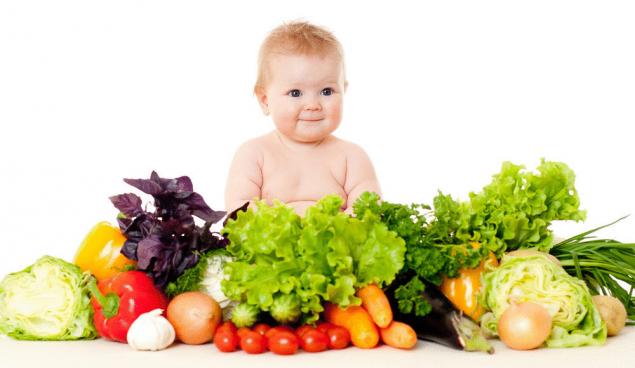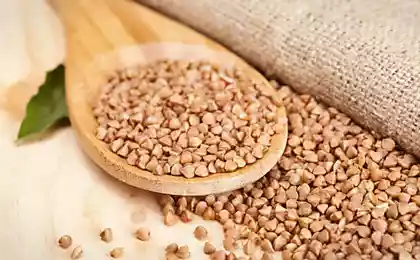543
Why is vegetarianism good for health?
Frequently asked questions, hinting at the dangers of vegetarianism:
1. Is it natural for humans to eat meat?
2. A person has a need for animal protein?
Answer: NO
The anatomy of the human teeth, digestive system is adapted for eating vegetarian food. Dietetic Association of the USA says: "Most people throughout history, mankind ate mostly vegetarian food." To this day, a large part supports vegetarianism. In advanced countries the habit of eating dead flesh, and spread not more than a century ago, with the appearance of refrigerators.

Table A. D. Andrews "Food for man" the Hygienic society of the United States, 1971.
CarnivorousHerbivorousMan No pores on the skin, cooling through the language of Many pores on the skin, sweating, Extensive sweating, the pores on the skin. Developed incisors for tearing meat Blunt cutters rugged cutters Underdeveloped salivary glands for the initial digestion of Highly developed salivary glands to digest food Well developed salivary glands for the initial digestion of the High acidity of saliva does not contain ptyalin Alkaline saliva with a high content of ptyalin, for the efficient digestion of fruits and cereals highly alkaline saliva with ptyalin for the best digestion of fruit and cereals Concentrated hydrochloric acid in the stomach for efficient digestion of meat, the Concentration of hydrochloric acid 8-10 times weaker than Hydrochloric acidity carnivore less than 6-8 times, compared to the predators
The length of the gastrointestinal tract is approx. 3 the length of the body. The length of the gastrointestinal tract 6-10 times greater than the length of the animal's body the Length of the intestine is six times greater than the length of the body. (since plant food decays more slowly, in comparison with meat)
Paavo Airola, a specialist in the field of natural biology and nutrition, reported: "Thirty years ago it was asserted that the intake of protein per day is 150 g, and today it is officially reduced to 40, Why? Modern studies have reliably confirmed that the human body needs no more than 30-40 ka grams of protein per day. Anything more than the daily value – excess protein which is harmful to the body, and can cause cardiovascular diseases and cancer. To acquire the necessary daily amount of protein is not necessary to use animals for food. A vegetarian diet of grains, nuts, legumes, fruits and vegetables provide a sufficient amount of protein.

Many nutritionists still believe that "complete proteins", i.e. those that contain 8 nevinovataya the human body amino acids are only in fish, eggs, meat and dairy products. But research at the Karolinska Institute in Sweden and the max Planck Institute in Germany showed that the majority of fruits, vegetables, nuts, seeds and grain can be fully and environmentally friendly substitutes all 8 "essential amino acids". A sufficient amount of natural products used in food completely exclude the possibility of protein deficiency in the human body.
N. B! The plant world is the source of all types of protein (in the end).
Vegans get their protein directly from the source, not through processing, as do meat eaters. By the way, a healthy body can produce the "essential amino acids".
Vegetarianism is natural and beneficial to humans.
Dr. Irving Fisher of Yale went a step further by examining the impact of consumption of animal protein on the performance. The results of the study showed that vegetarians have twice the stamina, compared to meat eaters. And when Fisher reduced the amount of meat consumed are not vegetarians by 20%, their performance increased by 35%.
Source: econews.com.ua
1. Is it natural for humans to eat meat?
2. A person has a need for animal protein?
Answer: NO
The anatomy of the human teeth, digestive system is adapted for eating vegetarian food. Dietetic Association of the USA says: "Most people throughout history, mankind ate mostly vegetarian food." To this day, a large part supports vegetarianism. In advanced countries the habit of eating dead flesh, and spread not more than a century ago, with the appearance of refrigerators.

Table A. D. Andrews "Food for man" the Hygienic society of the United States, 1971.
CarnivorousHerbivorousMan No pores on the skin, cooling through the language of Many pores on the skin, sweating, Extensive sweating, the pores on the skin. Developed incisors for tearing meat Blunt cutters rugged cutters Underdeveloped salivary glands for the initial digestion of Highly developed salivary glands to digest food Well developed salivary glands for the initial digestion of the High acidity of saliva does not contain ptyalin Alkaline saliva with a high content of ptyalin, for the efficient digestion of fruits and cereals highly alkaline saliva with ptyalin for the best digestion of fruit and cereals Concentrated hydrochloric acid in the stomach for efficient digestion of meat, the Concentration of hydrochloric acid 8-10 times weaker than Hydrochloric acidity carnivore less than 6-8 times, compared to the predators
The length of the gastrointestinal tract is approx. 3 the length of the body. The length of the gastrointestinal tract 6-10 times greater than the length of the animal's body the Length of the intestine is six times greater than the length of the body. (since plant food decays more slowly, in comparison with meat)
Paavo Airola, a specialist in the field of natural biology and nutrition, reported: "Thirty years ago it was asserted that the intake of protein per day is 150 g, and today it is officially reduced to 40, Why? Modern studies have reliably confirmed that the human body needs no more than 30-40 ka grams of protein per day. Anything more than the daily value – excess protein which is harmful to the body, and can cause cardiovascular diseases and cancer. To acquire the necessary daily amount of protein is not necessary to use animals for food. A vegetarian diet of grains, nuts, legumes, fruits and vegetables provide a sufficient amount of protein.

Many nutritionists still believe that "complete proteins", i.e. those that contain 8 nevinovataya the human body amino acids are only in fish, eggs, meat and dairy products. But research at the Karolinska Institute in Sweden and the max Planck Institute in Germany showed that the majority of fruits, vegetables, nuts, seeds and grain can be fully and environmentally friendly substitutes all 8 "essential amino acids". A sufficient amount of natural products used in food completely exclude the possibility of protein deficiency in the human body.
N. B! The plant world is the source of all types of protein (in the end).
Vegans get their protein directly from the source, not through processing, as do meat eaters. By the way, a healthy body can produce the "essential amino acids".
Vegetarianism is natural and beneficial to humans.
Dr. Irving Fisher of Yale went a step further by examining the impact of consumption of animal protein on the performance. The results of the study showed that vegetarians have twice the stamina, compared to meat eaters. And when Fisher reduced the amount of meat consumed are not vegetarians by 20%, their performance increased by 35%.
Source: econews.com.ua
In Ukraine will build a new solar plant with a capacity of 4.21 MW
The problem of the pollution of the city will decide innovative cement























